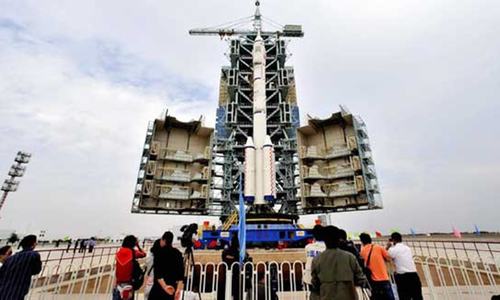Pakistan’s largest telescope brings outer space down to Earth

Few residents of the twin cities of Rawalpindi and Islamabad likely know that the country’s largest telescope – capable of observing the solar system, the Milky Way and neighbouring galaxies – is housed in the capital, just 17 kilometres from Zero Point on the Islamabad Expressway.
The telescope observatory is on the roof of the Institute of Space Technology building, in an unassuming area that is an unlikely home to Pakistani scientists and students researching outer space. Although open to students and researchers, anyone with an interest in space can visit the observatory with permission.
Through the telescope, one can see Venus, Jupiter, Mars, Saturn, Pluto, Neptune and Uranus, and the best time to observe the galaxy is at night in an unpolluted environment. Vision is particularly clear after rainfall, when dust has been washed away from the horizon.
In May this year, when Mars neared Earth, Pakistani researchers used the telescope to capture the planet’s movement, which appeared like a dot in front of the sun.

“The telescope is the largest functional one in the country, with a 0.4 meter mirror, and observes outer space, the Milky Way and adjoining galaxies,” said Waqas Zubairi, a research assistant at the Institute of Space Technology.
Dr Fazeel Mahmood Khan, who supervises the facility, said it was set up at the institute two years ago. He said the telescope allows individuals to observe distant stars and star clusters, which are at such enormous distances that their light takes thousands of years to reach Earth.

“The telescope is also capable of observing our neighbouring galaxy, Andromeda, at a distance of 2.5 million light years. Although it is the first of its kind in Pakistan, when compared to large facilities in advanced countries, it can only be considered a small baby,” he added.

Dr Khan said several research projects, including observing new extra solar planets, binary stars and gas clouds that give birth to stars and galaxies, are underway in collaboration with international partners.
“Apart from using telescopes, we used the Oak Ridge supercomputer – which is the second fastest supercomputer in the world – to model sophisticated processes involved in the mergers of black holes and galaxies,” he said.

“These national and international facilities are key to our graduate programme in astronomy and astrophysics. The programme was launched with the intent to enter, at some point, the elite class of nations that are exploring the mysteries of deep space and the universe.”
Published in Dawn, October 23rd, 2016












































